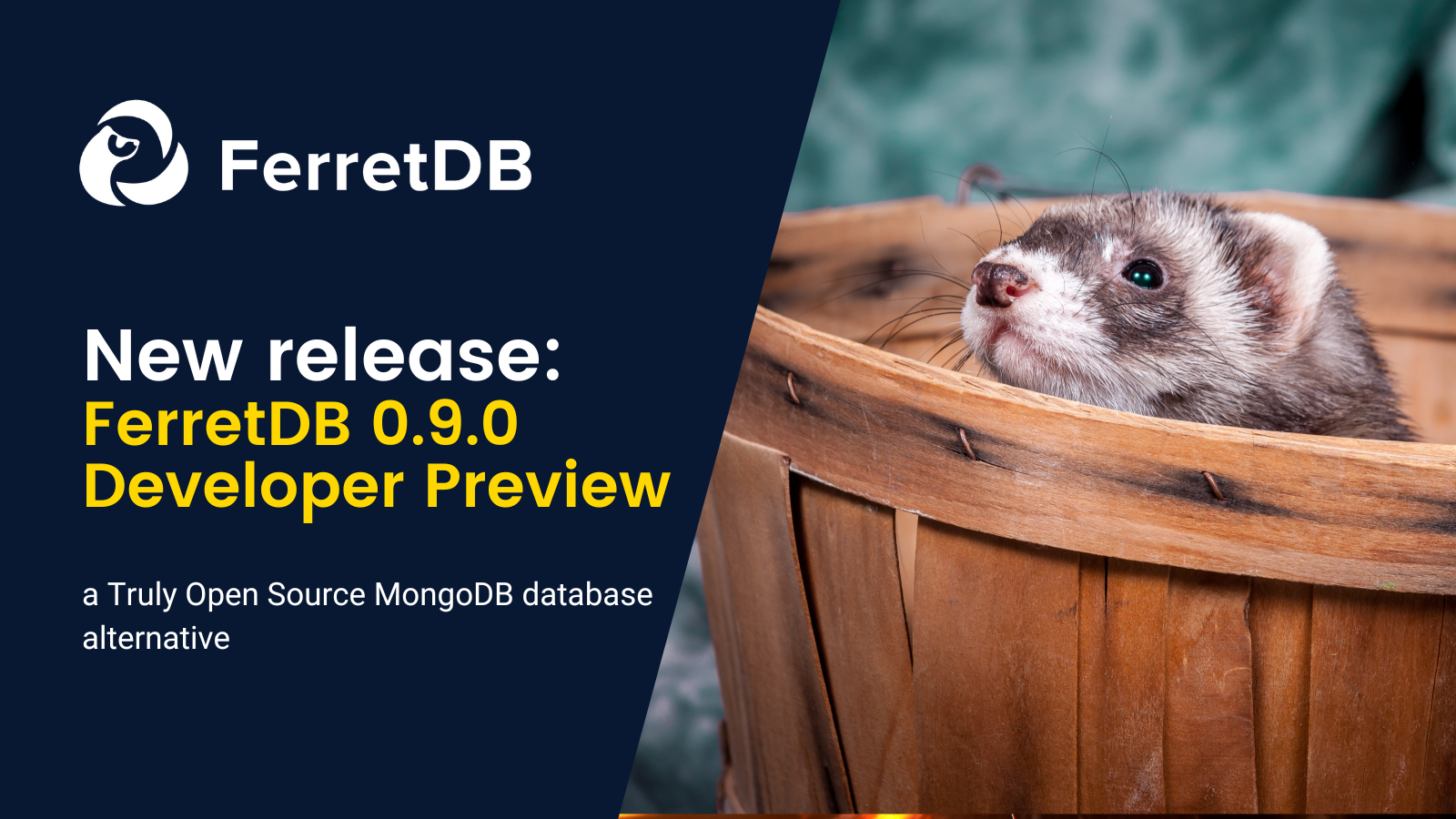FerretDB v0.9.0 - Developer Preview
FerretDB 0.9.0 brings exciting new features, such as support for aggregation pipelines.

We just rolled out our first Developer Preview - FerretDB v0.9.0, and we are so excited to show you all the new updates now available for you. The changes mentioned in this article are not exhaustive - see our release notes on GitHUb for the full list.
This version of FerretDB brings us closer to our mission of providing you with a true open-source alternative to MongoDB that supports more real-world use cases.
All this wouldn't be possible without the support of our community and everyone who contributed immensely to this release through their feedback, code, and support. Special appreciation goes to @jkoenig134 for their first contribution to FerretDB.
What's new
In this Developer Preview, we've added initial support for aggregation pipelines.
Currently, only the $match and $count stages have been implemented.
This $match stage is used to filter documents that match specified query conditions.
db.collection.aggregate([
{
$match: {
<query>
}
}
])
On the other hand, the $count stage counts the number of documents input into the stage and passes the result as a document to the next stage.
In the example below, the field represents the output field that contains the count of all documents that match the query conditions in the $match stage as its value.
db.collection.aggregate([
{
$match: {
<query>
}
},
{
$count: <field>
}
])
Keep an eye out for other aggregation pipeline stages in future releases.
FerretDB v0.9.0 now includes support for the $mul field update operator.
With this operator, you can perform multiplications on specific fields in your documents.
It takes two arguments: the field to update and the value to multiply the field with.
db.collection.update(
{<query>},
{
$mul: {
<field>: <value>
}
}
)
Besides that, FerretDB v0.9.0 now supports $push array update operator so that you can add elements to the end of an array field.
Here's how you can use it:
db.collection.update(
{<query>},
{
$push: {
<fieldName>: <value>
}
}
)
In the example above, fieldName represents the name of the array field and value represents the value you want to add to the array.
You can add multiple values at once by specifying an array of values.
This release also pushes more filtering queries to the backend, which significantly improves their speed. More of this will be implemented in future releases.
Bug Fixes
In this release, we've fixed a few pesky bugs causing issues for our users.
One of these bugs caused wrong error types to be returned when using dot notation with the $set operator, and the $inc operator to panic for non-existing array indices; that's now fixed.
Also, we have fixed the $set operator to correctly apply comparisons.
Previously, the modified count was not correctly updated when changing to the same value.
Documentation
We've updated our documentation to be more user-friendly, and this includes routing users directly to the documentation page rather than a landing page. Besides that, we've also updated our docker deployment guide to be as up-to-date as possible.
For users interested in contributing to our documentation, this new release introduces a documentation writing guide which should make it easier to get started.
For other changes in this new release, please see the release log.
Our sincere thanks go to all our users, partners, and the entire community for their unwavering support and contributions to FerretDB.
As we keep improving FerretDB to cover all aspects of our users' needs, we hope you can continue providing us with support and feedback for further improvements.
For more information on FerretDB, please contact us.
